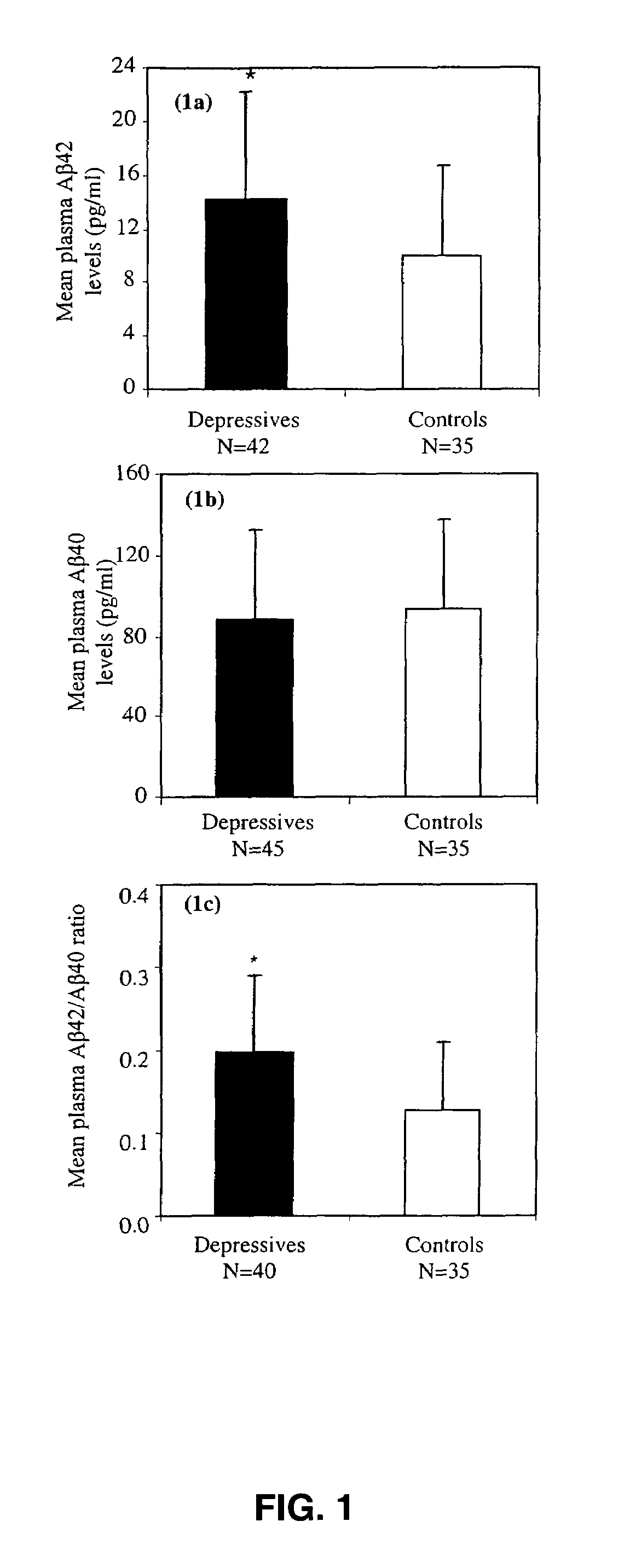Methods for diagnosis of major depressive disorder
a major depressive disorder and diagnosis technology, applied in the field of major depressive disorder diagnosis, can solve the problems of lack of social support network, major depression appearing generation after generation, and significant increase in suicides in this population, so as to reduce the levels of abeta proteins, and reduce the risk of suicid
- Summary
- Abstract
- Description
- Claims
- Application Information
AI Technical Summary
Benefits of technology
Problems solved by technology
Method used
Image
Examples
example 1
Elevation in Plasma Abeta42 in Geriatric Depression
Materials and Methods
[0197]Participants: Plasma samples were obtained from a subset of LLMD patients (N=47; 36 females) who had participated in a double blind randomized comparison of nortriptyline and paroxetine. The clinical characteristics of the LLMD patient samples were previously described (Mulsant, B. H., Pollock, B. G., Nebes, R. D., Miller, M. D., Little, J. T., Stack, J., Houck, P. R., Bensasi, S., Mazumdar, S., and Reynolds, C. F. 3rd (1999), A double-blind randomized comparison of nortriptyline and paroxetine in the treatment of late-life depression: 6-week outcome. J Clin Psychiatry 60 Suppl 20:16-20) and are briefly summarized here. The sample included inpatients and outpatients with LLMD and all subjects underwent comprehensive assessments consisting of a psychiatric history and mental status evaluation, social and medical history, physical exam, and laboratory tests. The Structured Clinical Interview for DSM-IV Axis ...
PUM
| Property | Measurement | Unit |
|---|---|---|
| time | aaaaa | aaaaa |
| temperature | aaaaa | aaaaa |
| temperature | aaaaa | aaaaa |
Abstract
Description
Claims
Application Information
 Login to View More
Login to View More - R&D
- Intellectual Property
- Life Sciences
- Materials
- Tech Scout
- Unparalleled Data Quality
- Higher Quality Content
- 60% Fewer Hallucinations
Browse by: Latest US Patents, China's latest patents, Technical Efficacy Thesaurus, Application Domain, Technology Topic, Popular Technical Reports.
© 2025 PatSnap. All rights reserved.Legal|Privacy policy|Modern Slavery Act Transparency Statement|Sitemap|About US| Contact US: help@patsnap.com



